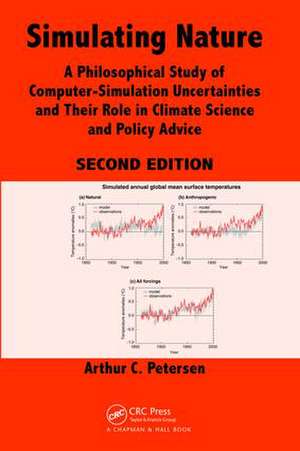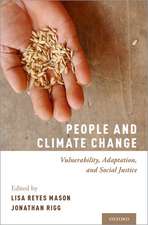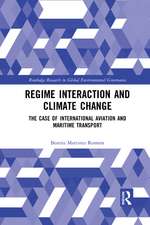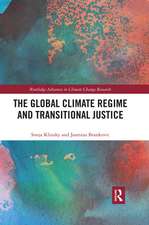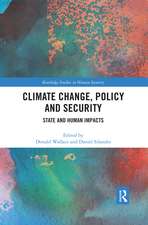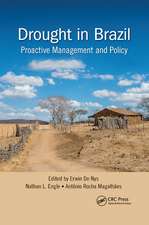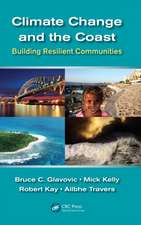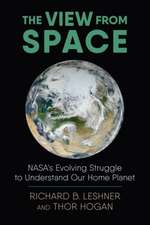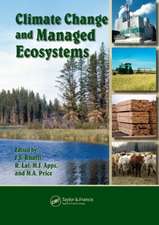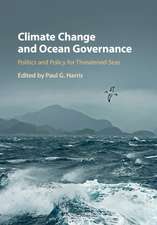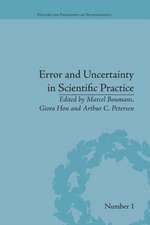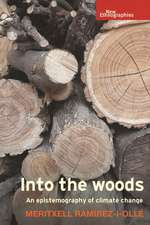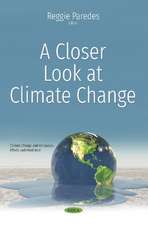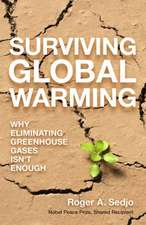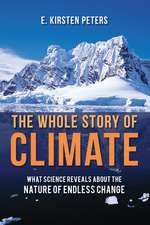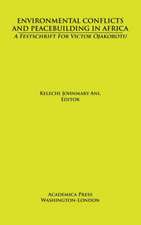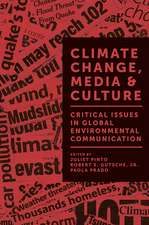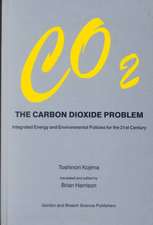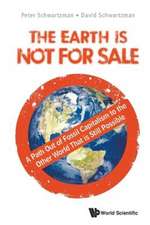Simulating Nature: A Philosophical Study of Computer-Simulation Uncertainties and Their Role in Climate Science and Policy Advice, Second Edition
Autor Arthur C. Petersenen Limba Engleză Hardback – 11 sep 2017
| Toate formatele și edițiile | Preț | Express |
|---|---|---|
| Paperback (1) | 484.40 lei 43-57 zile | |
| CRC Press – 24 apr 2012 | 484.40 lei 43-57 zile | |
| Hardback (1) | 1014.74 lei 43-57 zile | |
| CRC Press – 11 sep 2017 | 1014.74 lei 43-57 zile |
Preț: 1014.74 lei
Preț vechi: 1441.92 lei
-30% Nou
Puncte Express: 1522
Preț estimativ în valută:
194.23€ • 211.05$ • 163.26£
194.23€ • 211.05$ • 163.26£
Carte tipărită la comandă
Livrare economică 21 aprilie-05 mai
Preluare comenzi: 021 569.72.76
Specificații
ISBN-13: 9781138462458
ISBN-10: 1138462454
Pagini: 224
Dimensiuni: 156 x 234 mm
Greutate: 0.45 kg
Ediția:2
Editura: CRC Press
Colecția Chapman and Hall/CRC
ISBN-10: 1138462454
Pagini: 224
Dimensiuni: 156 x 234 mm
Greutate: 0.45 kg
Ediția:2
Editura: CRC Press
Colecția Chapman and Hall/CRC
Cuprins
Introduction. Simulation Practice, Uncertainty and Policy Advice: The Practice of Scientific Simulation. A Typology of Uncertainty in Scientific Simulation. Assessment of Simulation Uncertainty for Policy Advice. The Case of Simulating Climate Change: The Practice of Climate Simulation. Uncertainties in Climate Simulation. Assessments of Climate-Simulation Uncertainty for Policy Advice. Conclusions.
Recenzii
"This book can be considered a conceptual book for high-level graduate students as well as scholars from climatology-related fields who wish to understand the philosophy underlying computer-based simulation of climate."
—Journal of the Royal Statistical Society, Series A, 2015
"Simulating Nature is deeply rooted in applied statistics with a welcome openness to a few concepts such as risk, values, and uncertainties. This not-so-frequent-nowadays philosophical dimension in statistics is perhaps the strength of this book and that is why it would be important for graduate students who are already familiar with simulation and applied statistics. On the other hand, philosophers, experts in ethics, policymakers, and sociologists of science would certainly be able to follow most of the demonstrations on climate change, but they would probably focus as well on how these concepts and ideas are discussed and legitimised in this book."
—Yves Laberge, Journal of Applied Statistics, 40, 2013
"Amongst the heated politics of climate science, Petersen’s book does a rare thing. As a philosopher he takes a step back and asks, ‘What sort of knowledge is generated by climate models: is it reliable, is it authoritative, how is it used, is it useful?’ This new edition, fully updated six years after the first, should be read by all those producing or using, criticising or praising, believing or disbelieving, knowledge claims based on climate models. At the least, you will better be able to defend your position; and you may even find yourself changing it."
—Mike Hulme, professor of climate change, University of East Anglia, UK
"In this thought-provoking philosophical analysis, Arthur Petersen explores the nature of climate simulation and attendant uncertainties. Building on this evaluation, Petersen considers the complex processes within the scientific community, and between scientists and society, that ultimately determine whether an assessment becomes a robust, shared basis for decision, or contested and a source of dispute. He points out that it is not enough to analyze uncertainty as a purely technical problem. Deeper uncertainties such as those that stem from the way the problem is framed, models are structured, or expert judgments are made, must also be considered. His analysis has implications not only for the Intergovernmental Panel on Climate Change and other assessment bodies, but for all who debate the reliability and utility of model simulations as a basis for managing environmental risks in the anthropocene era."
—Richard Moss, senior staff scientist, PNNL Joint Global Change Research Institute, University of Maryland, College Park, USA
—Journal of the Royal Statistical Society, Series A, 2015
"Simulating Nature is deeply rooted in applied statistics with a welcome openness to a few concepts such as risk, values, and uncertainties. This not-so-frequent-nowadays philosophical dimension in statistics is perhaps the strength of this book and that is why it would be important for graduate students who are already familiar with simulation and applied statistics. On the other hand, philosophers, experts in ethics, policymakers, and sociologists of science would certainly be able to follow most of the demonstrations on climate change, but they would probably focus as well on how these concepts and ideas are discussed and legitimised in this book."
—Yves Laberge, Journal of Applied Statistics, 40, 2013
"Amongst the heated politics of climate science, Petersen’s book does a rare thing. As a philosopher he takes a step back and asks, ‘What sort of knowledge is generated by climate models: is it reliable, is it authoritative, how is it used, is it useful?’ This new edition, fully updated six years after the first, should be read by all those producing or using, criticising or praising, believing or disbelieving, knowledge claims based on climate models. At the least, you will better be able to defend your position; and you may even find yourself changing it."
—Mike Hulme, professor of climate change, University of East Anglia, UK
"In this thought-provoking philosophical analysis, Arthur Petersen explores the nature of climate simulation and attendant uncertainties. Building on this evaluation, Petersen considers the complex processes within the scientific community, and between scientists and society, that ultimately determine whether an assessment becomes a robust, shared basis for decision, or contested and a source of dispute. He points out that it is not enough to analyze uncertainty as a purely technical problem. Deeper uncertainties such as those that stem from the way the problem is framed, models are structured, or expert judgments are made, must also be considered. His analysis has implications not only for the Intergovernmental Panel on Climate Change and other assessment bodies, but for all who debate the reliability and utility of model simulations as a basis for managing environmental risks in the anthropocene era."
—Richard Moss, senior staff scientist, PNNL Joint Global Change Research Institute, University of Maryland, College Park, USA
Descriere
Colloquial Cambodian provides a step-by-step course in Cambodian as it is written and spoken today. Colloquial Cambodian has been developed by a linguist and an experienced Cambodian language professor and combines an accessible approach with a thorough treatment of the language, equipping learners with the essential skills needed to communicate confidently and effectively in Cambodian in a broad range of situations. No prior knowledge of the language is required.Key features include:progressive coverage of speaking, listening, reading, and writing skillsjargon-free explanations of grammaran extensive range of focused and stimulating exercisesrealistic and entertaining dialogues covering a broad variety of scenarioscoverage of the Cambodian writing scriptuseful vocabulary lists throughout the textadditional resources available at the back of the book, including a full answer key, a grammar summary, bilingual glossaries, and translations of dialogues and reading passages.Balanced, comprehensive, and rewarding, Colloquial Cambodian is an indispensable resource both for independent learners and for students taking courses in Cambodian.Accompanying audio material is available for free download from www.routledge.com/9780415524070 in MP3 format. Recorded by native speakers, the audio complements the book and will help enhance learners listening and speaking skills.
